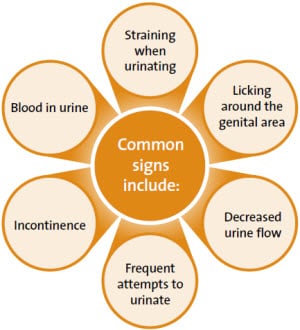
-
Find the right food for your pet
Take this quiz to see which food may be the best for your furry friend.
Find the right food for your pet
Take this quiz to see which food may be the best for your furry friend.
Featured products
 Small & Mini Savory Stew with Chicken & Vegetables Dog Food
Small & Mini Savory Stew with Chicken & Vegetables Dog FoodA delicious complement to the nutrition of Science Diet Small & Mini 7+ dog food
Shop Now Adult Healthy Cuisine Roasted Chicken, Carrots & Spinach Stew Dog Food
Adult Healthy Cuisine Roasted Chicken, Carrots & Spinach Stew Dog FoodDelicious roasted chicken paired with tender vegetables in a succulent stew
Shop Now Adult 7+ Perfect Digestion Chicken, Whole Oats & Brown Rice Recipe Dog Food
Adult 7+ Perfect Digestion Chicken, Whole Oats & Brown Rice Recipe Dog FoodScience Diet's breakthrough nutrition supports ultimate digestive well-being & healthy microbiome for dogs age 7+
Shop NowFeatured products
 Adult 7+ Tender Tuna Dinner Cat Food
Adult 7+ Tender Tuna Dinner Cat FoodWith delicious chunks in a decadent gravy
Shop Now Adult 7+ Senior Vitality Chicken & Vegetable Stew Cat Food
Adult 7+ Senior Vitality Chicken & Vegetable Stew Cat FoodImproves Everyday Ability to Get Up & Go
Shop Now Adult Savory Entrée Can Variety Pack Cat Food
Adult Savory Entrée Can Variety Pack Cat FoodPrecisely balanced nutrition with the delicious taste of savory minced chicken to help fuel the energy needs of cats during the prime of their life
Shop Now -
Dog
- Dog Tips & Articles
-
Health Category
- Weight
- Food & Environmental Sensitivities
- Urinary
- Digestive
- Joint
- Kidney
-
Life Stage
- Puppy Nutrition
- Adult Nutrition
- Senior Nutrition
Cat
- Cat Tips & Articles
-
Health Category
- Weight
- Skin & Food Sensitivities
- Urinary
- Digestive
- Kidney
-
Life Stage
- Kitten Nutrition
- Adult Nutrition
Featured articles
 Does My Pet Hate Me?
Does My Pet Hate Me?Learn tips for bonding with your pet if you've ever thought, 'My dog doesn't like me, or 'Why do I have a standoffish cat?'
Read More Do Dogs and Cats have Belly Buttons?
Do Dogs and Cats have Belly Buttons?Learn whether cats & dogs have belly buttons like humans, what the function is, and if there are any health concerns associated with it.
Read More Why Are Dogs and Cats So Cute?
Why Are Dogs and Cats So Cute?If waggy puppy dog tails and furry kitten yawns make you swoon, you're not alone. Why are cats so cute? And, dogs too! Let's find out!
Read More -


Related Image Content
What is Urolithiasis?
Urolithiasis is a urinary tract disease in which crystals or stones form within the urinary tract and cause irritation, pain and possibly blockage.
What are urinary bladder stones?
Urinary bladder stones (also known as uroliths) are collections of mineral crystals that combine together to form a stone in the urinary bladder. Less often, stones may form in the kidneys. The pH of your dog’s urine affects the development of the crystals that lead to urinary bladder stones. The most common type of stone/crystal is struvite, and these tend to form in alkaline urine. Other types develop in more acidic urine.
What causes urinary bladder stones?
Though there is no single cause of urolithiasis, or urinary tract disease, veterinarians recognize there are components that may contribute to the prevalence of the disease. Factors, that increase your dog’s likelihood of developing a problem include:
Age: Dogs between the ages of 2 and 10 are most susceptible.
Gender: Both males and females get the disease with equal frequency, but males have a greater risk of life-threatening urethral obstruction from the crystals or stones
Infection: Bacterial infection of the bladder, causing alkaline urine, is the main cause of struvite crystal formation.
Food: You already know the food you feed your dog is extremely important in keeping him healthy. But feeding him the wrong kind of food can cause urolithiasis. High levels of certain minerals in dog food can increase the chance of crystal formation in urine. Magnesium and phosphate are mineral components of the most common crystal type struvite. Don’t feed a dog food with excessive amounts of these minerals. The dog food your dog eats also influences urine acidity (pH). This may encourage certain stones to form, so it’s important to feed a dog food that supports bladder health.
Low water intake: Not taking in enough water leads to more concentrated urine, which may increase the likelihood of stones forming.
Breed Predisposition: Small breed dogs are more susceptible than large breed dogs. Also, certain dog breeds, such as miniature schnauzers, Dalmatians, Yorkshire terriers and bulldogs, are more prone to develop urinary bladder stones.
Other contributing factors can be lack of exercise, inability to urinate frequently (typical in a confined indoor dog), or reduced water intake.


Tasty Tips
Does my dog have a urinary problem or bladder stones?
If your dog has urinary problems, he may be very uncomfortable. It’s important to contact your veterinarian immediately for a complete examination if you notice any of the following common signs below.
- Straining when urinating
- Blood in urine
- Licking the genital area
- Incontinence or an inability to control urination
- Decreased urine flow
- Frequent attempts to urinate
- Reduced appetite
- Lack of energy or interest in normal activities

IMPORTANT: If your dog is not urinating freely, a urinary blockage may be the cause. Consult your veterinarian immediately as this condition could be life threatening.
Treatment: The importance of nutrition
The dog food your dog eats plays an, important role in his overall health and well-being. Balanced nutrition is an essential part of an active, healthy lifestyle. When your dog has urinary bladder stones, it is even more important to feed the right dog food. Foods high in magnesium, phosphorus, protein and calcium have been linked to stone formation. Veterinarians believe feeding your dog a food with restricted amounts of these minerals can assist in the dissolution of some types of stones that have formed in his urinary tract. For accurate diagnosis and treatment options, always consult your veterinarian and ask them to recommend the best food for your dog’s urinary tract health.
And remember, any dog that has been treated for urinary tract disease runs the risk of contracting it again. Therefore, it's important to continue with the nutritional management of the disease and watch closely for the recurring symptoms.
Urinary Health Questions to Ask Your Veterinarian
- What may be causing my dog’s accidents? What are the short-term and long-term treatment options?
- Be sure to ask if infrequent or non-patterned accidents may be a sign of a more serious ,problem.
- Ask if the problem is behavioral, environmental or medical.
- Ask how nutrition and water consumption may be affecting your dog’s health.
- Should nutrition be a part of my dog’s treatment regimen? Would you recommend a Prescription Diet® dog food for my dog’s bladder health?
- What if I have multiple dogs? Can I feed them all the same dog food?
- How can nutrition help? What is the benefit of feeding therapeutic nutrition as part of treatment which may include administering pills?
- What are the pros and cons of using nutrition to help manage my dog’s urinary health?
- Which form of dog food is better for urinary issues, kibble or wet? Why?
- If you feed your dog a mixture of kibble and wet food, ask which therapeutic formulas can be mixed.
- How long will I need to feed the recommended dog food to my dog?
- Ask how feeding a therapeutic dog food can help promote long-term urinary health for my dog?
- What is the best way (email/phone) to reach you or your hospital if I have questions?
- Ask if you need a follow-up appointment.
- Ask if a reminder email or notice will be sent.


One of our staff authors prepared this article for you
Related products

Delicious roasted chicken paired with tender vegetables in a succulent stew

A delicious complement to the nutrition of Science Diet Small & Mini 7+ dog food

Delicious braised beef paired with tender vegetables in a succulent stew

Science Diet's breakthrough nutrition supports ultimate digestive well-being & healthy microbiome for dogs age 7+
Related articles

Large and giant breed puppies have different nutritional needs than other dogs. Learn how to provide the special care they need to grow up big and strong.

Your dog's coat and skin are a big part of your dog's overall health. Ensure you keep your dog's coat healthy, by following these simple tips.

Learn about choosing the right food for your mature or older dog, ensuring he receives the correct balance of nutrition.

Hill's Science Diet Small & Toy Breed dog foods are designed to meet the nutritional needs for your small dog at every life stage. Learn more here.

Put your dog on a diet without them knowing
Our low calorie formula helps you control your dog's weight. It's packed with high-quality protein for building lean muscles, and made with purposeful ingredients for a flavorful, nutritious meal. Clinically proven antioxidants, Vitamin C+E, help promote a healthy immune system.
Put your dog on a diet without them knowing
Our low calorie formula helps you control your dog's weight. It's packed with high-quality protein for building lean muscles, and made with purposeful ingredients for a flavorful, nutritious meal. Clinically proven antioxidants, Vitamin C+E, help promote a healthy immune system.

